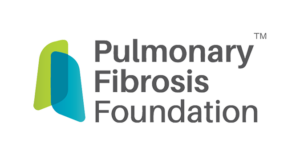Overview
At Avalyn, patients are at the center of our business, and we strive to identify and implement patient feedback and meet the needs of the patient community we serve in every aspect of our work.
This is the right thing to do and will benefit both patients and Avalyn as we develop our medicines. We aim to deliver a positive clinical trial experience to research volunteers while advancing research efforts to provide improved therapeutic options.
Patients with ILDs (PPF & IPF) have few options and poor outcomes
Burden of IPF

Diagnosis + Treatment Delays

Tolerability Issues / Medicines

Outcomes

– Chambers et al. J. Heart Lung Transplant, 2019, 38: 1042-1055
– Kistler et al. BMC Pulm Med, 2014, 14:139
– Bellhassen et al. BMC Resp Res, 2021, 22:135
– Salisbury et al. Ann Am Thorac Soc. 2020 Nov;17(11):1413-1423.
– Kaunisto et al. ERJ Open Research 2019 5: 00170-2018
Clinical Trials
AP01

Read More »
Therapeutic: AP01 (inhaled pirfenidone), in clinical development as a potential inhaled treatment for progressive pulmonary fibrosis (PPF)
Trial Status: Actively recruiting
Trial Information: The MIST Study is a randomized, double-blind, placebo-controlled, multi-center, Phase 2b global clinical study to evaluate the safety and efficacy of 2 doses of AP01 versus placebo on top of standard of care in subjects with Progressive Pulmonary Fibrosis (PPF) over 52 weeks. 300 eligible subjects will be randomized to 1 of 3 treatment arms: AP01 100 mg twice a day, AP01 50 mg twice a day, or placebo twice a day. Both AP01 and placebo will be administered by oral inhalation using the investigational eFlow® Nebulizer System (eFlow).
The study will include adults diagnosed with progressive pulmonary fibrosis [subjects with interstitial lung disease (ILD) of known or unknown etiology other than idiopathic pulmonary fibrosis (IPF) who have radiological evidence of pulmonary fibrosis]. To be included in the study, the patient must have physiological evidence of disease progression as seen in an absolute decline in FVC ≥5% predicted within the previous 6 to 12 months relative to Screening Visit 1 and worsening respiratory symptoms or radiological evidence of disease progression. The definition of PPF above is modified from Raghu et al, 2022 for the purposes of this protocol. For subjects already on concomitant therapies such as nintedanib, methotrexate, mycophenolate mofetil (MMF), tocilizumab, or rituximab, subjects must have been on therapy for 6 months and had no change in administered dose for at least 12 weeks.
The primary endpoint of the study is change from baseline in forced vital capacity (FVC) (mL) at Week 52. Additional secondary and exploratory endpoints include clinical efficacy and safety measures through QOL, disease progression, and imaging endpoints of AP01.
For more information, visit clinicaltrials.gov and mistppfstudy.com










